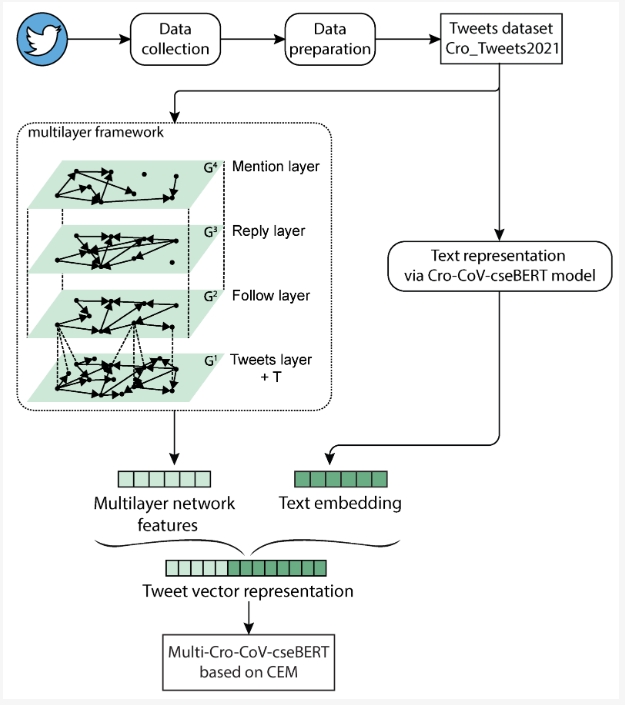
Retweet prediction is an important task in the context of various problems, such as information spreading analysis, automatic fake news detection, social media monitoring, etc. In this study, we explore retweet prediction based on heterogeneous data sources. In order to classify a tweet according to the number of retweets, we combine features extracted from the multilayer network and text. More specifically, we introduce a multilayer framework for the multilayer network representation of Twitter. This formalism captures different users’ actions and complex relationships, as well as other key properties of communication on Twitter. Next, we select a set of local network measures from each layer and construct a set of multilayer network features. We also adopt a BERT-based language model, namely Cro-CoV-cseBERT, to capture the high-level semantics and structure of tweets as a set of text features. We then trained six machine learning (ML) algorithms: random forest, multilayer perceptron, light gradient boosting machine, category-embedding model, neural oblivious decision ensembles, and an attentive interpretable tabular learning model for the retweet-prediction task. We compared the performance of all six algorithms in three different setups: with text features only, with multilayer network features only, and with both feature sets. We evaluated all the setups in terms of standard evaluation measures. For this task, we first prepared an empirical dataset of 199,431 tweets in Croatian posted between 1 January 2020 and 31 May 2021. Our results indicate that the prediction model performs better by integrating multilayer network features with text features than by using only one set of features.